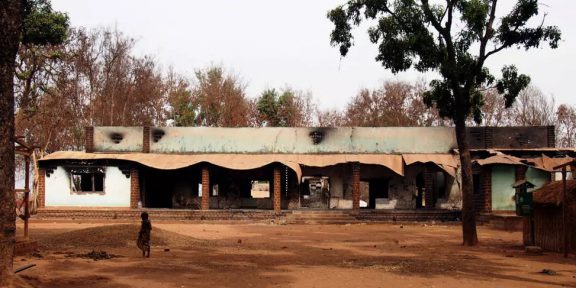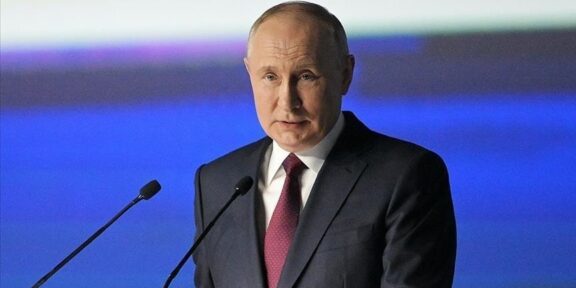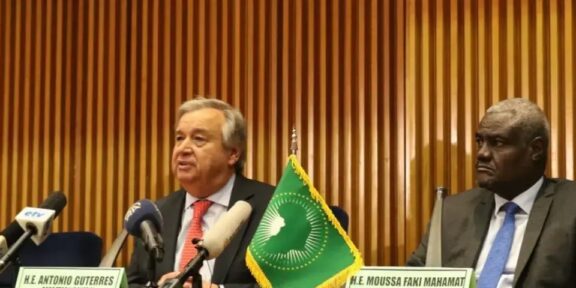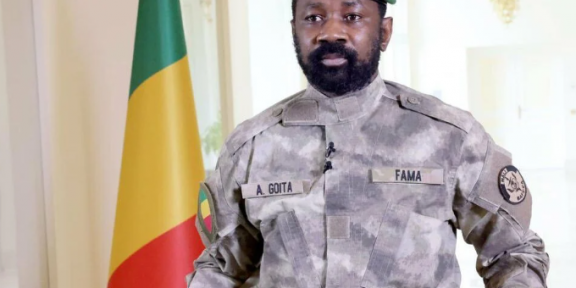The creation of the BRICS as an agency to promote multilateralism, multipolarity, multiculturalism shook up international relations. In order to engage the conversation on issues dear to the BRICS and to contribute to the advancement of self-determination, sovereignty, freedom, and justice, a number of social activists gathered in the newly founded organization “New Dawn Vision” organized a conference on Saturday, August 7, 2021 via Zoom. Two speakers, Paseka Pharumele, an Academic and a founding member of Convention for Pan-Africanism and Progress (CPP) and Heather Benno from the Party for socialism and Liberation (PSL) discussed the following topic “BRICS: Common Humanity for Shared Prosperity”.
Paseka Pharumele, who discussed the topic from an afro-centric perspective, highlighted the growing importance of Africa in international affairs through the presence of South Africa in the BRICS. Some members in the attendance have expressed their desire to see other African nations integrating the BRICS given that only South Africa stands as a voice for Africa amidst four other powerful countries in the cooperation.
Paseka Pharumele later addressed the question of the chain of development: “ For a country to be successful, there needs to be economic development, and in order for economic development to be achieved, you need to be funded and one cannot be funded if the country that is funding you is doing so focusing on its personal gain. Thus, the BRICS bank was created to assist developing countries free themselves from over dependence from imperialist banks and divert their financial requests to banks which do not center on Western imperialist ideologies.” The BRICS bank called the New Development Bank is based in China that is about to surpass the United States of America as the biggest world economy in the world and who is investing heavily in Africa through infrastructure projects. The forceful engagement of China in Africa has occupied a very important portion of the conversation. Some see it as invasive, suspecting China of being a rising empire driven by an imperialistic agenda. Others argued that China is presenting an alternative partnership paradigm that needs to be acknowledged. In this vein Heather Benno, who discussed the issue of Afro-Asian Solidarity since the era of struggles against colonialism affirmed that the BRICS expands the options of countries of the south namely African who did not have any other opportunity but to be remain in the shackles of the International Monetary Fund and the World Bank. Later she weighed in the debate on China influence in the world: “China’s foreign policy is really not determined by any sort of revolutionary orientation or by feelings of giant imperialistic solidarity. It’s just that it’s still not a member of the small club of imperialistic powers that attempt to rule the world which other nations find problematic”. In essence, she added that “ China’s foreign policy can’t be seen as being revolutionary per say , however from a Marxist point of view, it is entirely proper for China to deepen her economic relations and trade with capitalist countries especially those in the former colonized and semi colonized worlds”. The speakers and some attendees have recalled that the BRICS is some how an offshoot of past alliances forged to combat systems of oppression such as colonialism, apartheid, and imperialism. The economic dimension of these past alliances should be reinforced under the umbrella of the BRICS in the respective fertile sectors of agriculture, digital empowerment, medicine, education, and of the transfer of technology. This model is preferred over the usual exploitative collaborations. Several voices led by the speakers have advocated a strong African collective consciousness and Pan-Africanism in order for Africa to have a bargaining leverage be in its negotiations with the institutions of the Bretton Woods or with the BRICS.
A speaker in the audience has lamented that the conversation overlooked the crucial importance of safety and security as the pillar and the building block of a developmental process. China is not offering that sense of protection and security to the African countries who need it but the Russian Federation who has helped the Central African Republic neutralize a decade-long civil war and rebellion. The issue of crypto-currency was also discussed. An attendee has suggested Africa looks into the crypto-currency paradigm in order to free itself from the monetary imprisonment mainly the one that binds France with its former African colonies, members of the CFA Franc Zone.
New Dawn sets periodic meetings as part of its mission to raise awareness about the need for a new dawn in the world in which people are bound by their common humanity and can benefit from their shared prosperity. Its next conference will be held in September.









